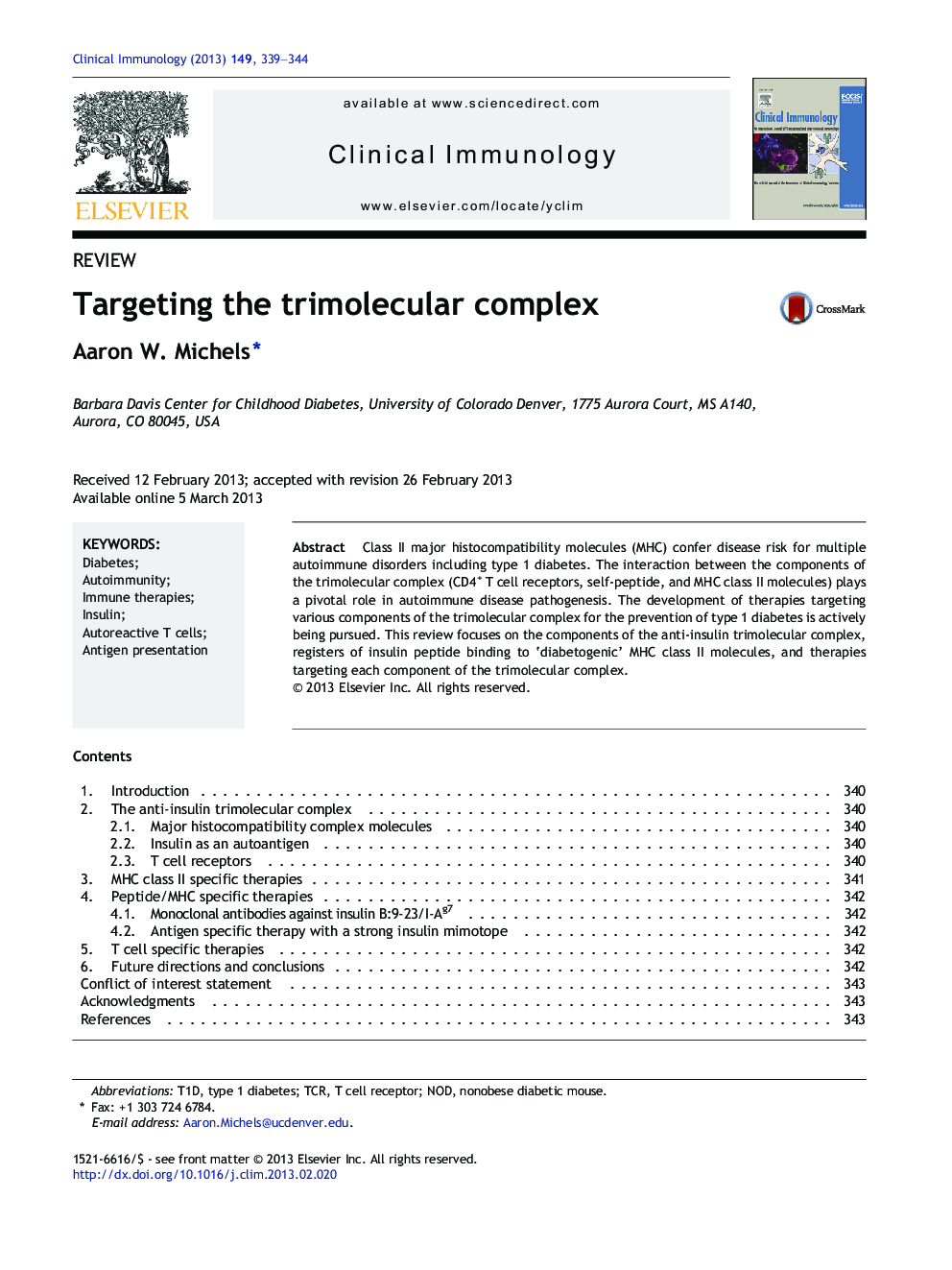| Article ID | Journal | Published Year | Pages | File Type |
|---|---|---|---|---|
| 3256939 | Clinical Immunology | 2013 | 6 Pages |
•The trimolecular complex is a target for therapies in diabetes.•Small molecule drugs can block allele specific peptide presentation to T cells.•Glyphosine with insulin B:9-23 leads to IL10 production and diabetes prevention.•A monoclonal antibody specific for an insulin/MHC complex blocks T cell activation.•Specific T cell receptor antibodies can prevent autoimmune diabetes in rat models.
Class II major histocompatibility molecules (MHC) confer disease risk for multiple autoimmune disorders including type 1 diabetes. The interaction between the components of the trimolecular complex (CD4+ T cell receptors, self-peptide, and MHC class II molecules) plays a pivotal role in autoimmune disease pathogenesis. The development of therapies targeting various components of the trimolecular complex for the prevention of type 1 diabetes is actively being pursued. This review focuses on the components of the anti-insulin trimolecular complex, registers of insulin peptide binding to ‘diabetogenic’ MHC class II molecules, and therapies targeting each component of the trimolecular complex.
